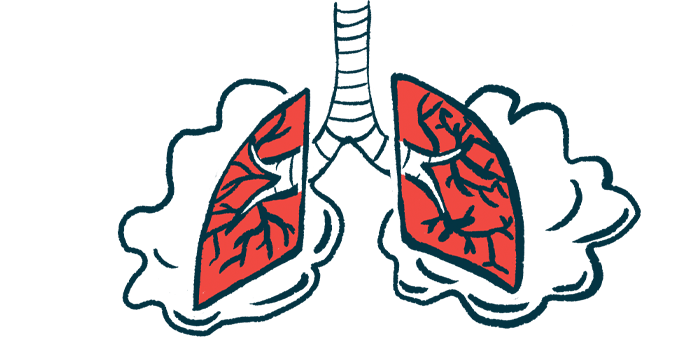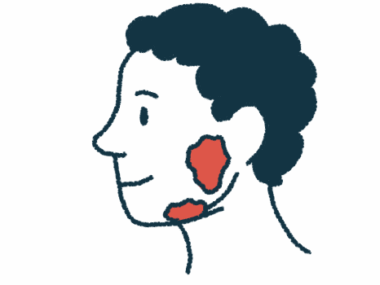Fast-progressing Case Highlights Need for Good Management
Written by |

The case of an elderly woman who may have developed Cushing’s syndrome due to a hormone-producing lump in her lungs highlights the need for a timely and “multidisciplinary approach in [the] diagnosis and management” of hypercortisolism disorders, according to a new report.
This patient’s signs and symptoms progressed rapidly to general fatigue, recurrent falls, and problems in the heart, gut, and bones, the researchers said.
“A delay in diagnosis and management often results in rapid deterioration of clinical status,” the team wrote in a case report.
That report, “A rapidly progressive case of ectopic adrenocorticotropic hormone (ACTH) syndrome,” was published in the American Journal of Case Reports.
Cushing’s syndrome occurs when large amounts of cortisol — a naturally occurring steroid hormone — are produced by the adrenal glands, which sit atop the kidneys. Sometimes, this is caused by an excess of adrenocorticotropic hormone or ACTH, a hormone normally produced by the brain’s pituitary gland that drives the adrenal glands to produce cortisol.
When excess ACTH comes from a source other than the pituitary gland, Cushing’s syndrome is said to be ectopic. It is a rare condition, accounting for up to 5% of all cases of Cushing’s syndrome.
Now, a team of investigators in the U.S. reported the case of a 74-year-old woman, treated in Kentucky, who developed ACTH-dependent Cushing’s syndrome.
The woman visited the hospital for edema (swelling) and low blood potassium levels — a condition known as hypokalemia — lasting one month. For three months, she had been feeling weak and fallen many times.
Her medical history included diabetes (high blood sugar levels), kidney disease, heart disease, hypothyroidism — having an underactive thyroid gland — and hypertension, or high blood pressure. The patient also had hyperlipidemia, which means she had high levels of fatty molecules in the blood.
A physical exam revealed an excess accumulation of fat in the abdominal area, bruised skin, and swelling in the face, arms, and legs. Blood tests revealed she had low blood potassium levels and metabolic alkalosis — a condition in which the blood’s pH is abnormally high, due to the presence of increased levels of bicarbonate.
The woman was started on potassium and spironolactone — a potassium-sparing medicine that prevents the loss of potassium through urine — to treat her hypokalemia. However, she did not respond to treatment.
At that point, “workup for the secondary cause of persistent hypokalemia was pursued,” the investigators wrote.
Hormone testing revealed the patient had high ACTH levels in the blood and high cortisol levels in the urine. Moreover, cortisol levels remained high after a cortisol suppression test, in which a medication called dexamethasone is used to see if a drop in ACTH levels has an effect on the amount of cortisol produced by the adrenal glands. Imaging of the pituitary gland revealed no abnormalities.
These findings indicated the woman likely had ACTH-dependent Cushing’s syndrome secondary to an ectopic source.
Further imaging studies revealed the presence of a nodule, or lump, in her right lung — measuring 1.4 cm (0.55 inches) in size — as the probable source of excess ACTH. Moreover, both adrenal glands were enlarged.
While results of the imaging studies were pending, the woman was admitted to the hospital twice: once for a bleeding stomach ulcer (an open sore in the lining of the stomach), and once for heart failure.
“The patient’s overall condition continued to deteriorate, and she became progressively weak and wheelchair-bound,” the investigators wrote.
The next step to determine the exact source of excess ACTH would be nuclear imaging. However, the woman fractured her left hip bone and was unable to undergo the exam. Therefore, she was started on Korlym (mifepristone) to manage blood sugar levels until surgery.
“However, considering the patient’s advanced comorbid [coexisting] conditions, the increased burden of the patient’s health care needs on her elderly husband, and the inability of other family members to provide necessary healthcare-related support, palliative care was pursued,” the investigators wrote, adding that “her clinical condition rapidly deteriorated without surgical treatment.”
As of September, she continued receiving palliative care in a nursing home.
The researchers noted that the ongoing COVID-19 pandemic also had contributed to case management difficulties with this patient.
“The impact of the COVID-19 pandemic also played a critical role in promptly providing critical care necessary to the patient,” they wrote.
Overall, however, the team said this case highlighted the need for multidisciplinary management.
“[Ectopic Cushing’s syndrome] is a rapidly progressive and life-threatening situation that can be fatal if diagnosis or timely intervention is delayed,” the researchers wrote.







